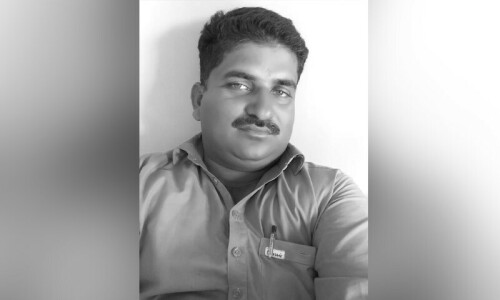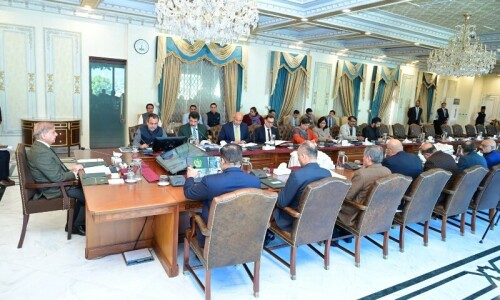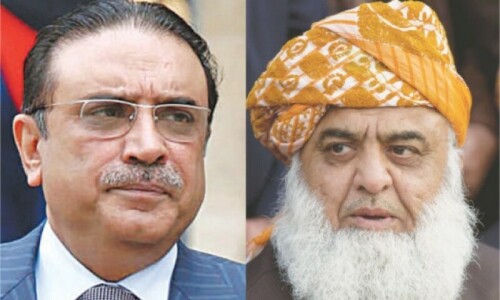THE call by Fata parliamentarians to have the region they represent merged with and administered by the province of Khyber Pakhtunkhwa has once again shone a spotlight on that most ignored of governance, judicial and constitutional issues: the status of Fata as an integral part of Pakistani territory but deliberately kept outside the normal administrative and constitutional scheme of things.
What the Fata parliamentarians have proposed also carries extra significance because the MNAs are directly elected by the people of Fata. As such, the parliamentarians’ recommendations carry more weight than the decidedly less representative and anachronistic system of tribal maliks and jirgas.
Also read: Tribal lawmakers ask govt to make Fata part of KP
In truth, however, the parliamentarians have proposed a halfway house: merging Fata and Frontier Regions with KP and administering those areas as a Provincially Administered Tribal Area.
It is quite possible that the call for a separate province altogether, while deemed desirable was considered unfeasible, given the impact that it would have on the federation, from the composition of the Senate to that of bodies such as the Council of Common Interests.
Whether Fata and the Frontier Regions are to be submerged into an existing province or given the standing of an autonomous province, this cannot be denied: the region needs fundamental reforms that go far beyond anything proposed over the last decade.
The amendments to the FCR, the extension of the Political Parties Act and sundry tweaks to the administration of Fata since 2010 have done little to change the governance dynamics of the tribal areas. It is simply unacceptable that a region that has borne the brunt of militant rule and military operations for over a decade now should be treated as a zone cut off and separate from the rest of Pakistan.
The very least Fata deserves is the sustained economic and administrative assistance of the state — and an iron-clad commitment to ensuring that at the end of the darkness that has engulfed Fata, there will be light for its people.
If Fata has been asked to sacrifice so much — vast sections of its people made homeless for years, the entire region treated as a laboratory for non-state actors and religious wars over the decades — surely its people deserve to be acknowledged as full and equal citizens of Pakistan.
Ultimately, though, whether change for the better will in fact come to Fata depends on if the national institutions are able to agree on the necessary balance between the security of the country and the socio-economic needs of its people.
Fata’s second-tier status has since the very beginning been linked to its proximity with Afghanistan. So long as the latter remains unstable and the border between the two countries remains porous, there will be a powerful lobby advocating a virtual wall between Fata and the rest of Pakistan.
Arguably, however, it is that very wall that led to Fata becoming a hotbed of militancy and a threat to the rest of the country and the region.
Published in Dawn, September 10th, 2015
On a mobile phone? Get the Dawn Mobile App: Apple Store | Google Play












































